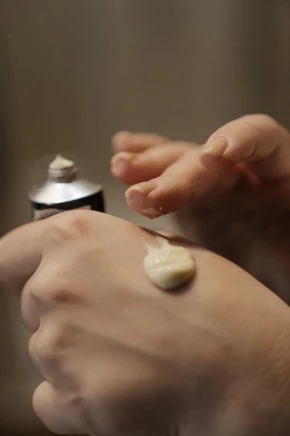Silicones in skincare have been a topic of debate among beauty enthusiasts and experts. These synthetic polymers, commonly referred to as silicones, are widely used in cosmetics and skin care products due to their unique properties. However, there are concerns about their potential negative effects on the skin. Silicones are known for their ability to create a smooth and slippery texture, making them popular ingredients in makeup primers and foundations. They provide a temporary filling effect that can blur the appearance of fine lines and pores, giving the skin a smoother appearance. Additionally, silicones offer stability and resistance to sweat, water, and heat, making them long-lasting components in various beauty products.
Table of Contents
What are Silicones?
Silicones are a common ingredient found in many skincare products, but there is some debate surrounding their safety and efficacy. Silicones are a group of synthetic polymers that contain repeating units of silicon and oxygen atoms. They are often used in cosmetics due to their unique properties. One reason why silicones are popular in skincare is their ability to create a smooth and slippery texture, which can help makeup glide on more easily. They also provide stability and resistance to sweat, water, and other environmental factors, making them long-lasting on the skin.
Why are They Used in Skincare and Makeup?
Skincare and makeup products often incorporate the use of silicones due to their unique properties and benefits. Despite the controversy surrounding their safety, silicones continue to be widely used in the beauty industry. Silicones are synthetic polymers that contain a chain of repeating units with alternating oxygen atoms. This molecular structure gives them a high level of chemical reactivity, making them useful in various applications. One of their key characteristics is their ability to create a smooth and slippery texture, which is desirable in skincare and makeup products.

In skincare, silicones are commonly used as ingredients in moisturizers, serums, and primers. They form a protective barrier on the skin’s surface that helps to trap moisture and prevent evaporation. This can lead to enhanced hydration and smoother-looking skin. Additionally, silicones can act as occlusives, preventing dirt, bacteria, and sweat from penetrating into the skin.
It’s worth noting that while some studies suggest potential risks associated with certain types of silicones (such as siloxanes), regulatory bodies like the FDA have deemed them safe for use in cosmetics within specified limits.
Are Silicones Bad for Sensitive Skin?
Silicones have long been a topic of debate in the skincare industry, particularly when it comes to their impact on sensitive skin. Silicones are synthetic polymers derived from siloxanes, which are composed of silicon atoms bonded with oxygen atoms. They are commonly used in various beauty and personal care products due to their unique properties.
One of the main reasons silicones are used in skincare is their ability to provide a smooth and slippery texture, making them ideal for primers, moisturizers, and makeup products. They create a barrier on the skin’s surface that helps to lock in moisture and keep it hydrated throughout the day.

Silicones are commonly used in skincare and beauty products for their various benefits. They can create a smooth and silky texture, provide a protective barrier on the skin, and help to lock in moisture. However, some people with sensitive skin may find that silicones can cause irritation or clog pores.
Do Silicones Cause Acne?
Silicones are a group of ingredients commonly found in skincare and beauty products, known for their unique properties and benefits. However, there has been some debate about whether silicones can cause acne or have any negative effects on the skin.
Silicones are synthetic polymers composed of repeating units with oxygen atoms bonded to silicon atoms. This chemical structure gives them excellent stability and resistance to heat, water, and chemicals. Silicones also impart a smooth and slippery texture to products, making them easy to apply and creating a desirable finish.
One concern associated with silicones is that they can form a barrier on the skin’s surface, potentially trapping dirt, bacteria, sweat, and other impurities. However, studies have shown that this barrier is not occlusive or suffocating to the skin. It allows for normal perspiration and does not clog pores or lead to acne formation.
Which Skin Care Product to Choose
When it comes to choosing the right skincare product for you at https://supermood.us/, it is essential to consider the ingredients used. One ingredient that has gained attention in recent years is silicones. Silicones are synthetic polymers containing oxygen atoms and are commonly found in many beauty products.
While silicones have been widely used in the cosmetic industry for their ability to provide a smooth and slippery texture, there have been concerns about their potential impact on skin health. Some argue that certain types of silicones, such as siloxanes, can trap dirt, bacteria, and sweat on the skin’s surface, potentially leading to clogged pores and breakouts.
As with any beauty routine or supplement choice, it is advisable to do thorough research and consult with a dermatologist before making any decisions regarding your skincare regimen. When it comes to your skincare regimen, it’s always a good idea to do thorough research and consult with a dermatologist. Skincare is not one-size-fits-all, and what works for one person may not work for another.
A dermatologist can provide personalized advice based on your specific skin type, concerns, and any underlying conditions you may have. Researching different products, ingredients, and their potential effects is crucial in making informed decisions about your skincare routine. Look for reliable sources of information, such as scientific studies or reputable skincare experts.
This will help you understand the benefits and potential risks associated with certain products or ingredients. Consulting with a dermatologist is especially important if you have any existing skin conditions or are considering using more advanced treatments like prescription medications or invasive procedures.



















